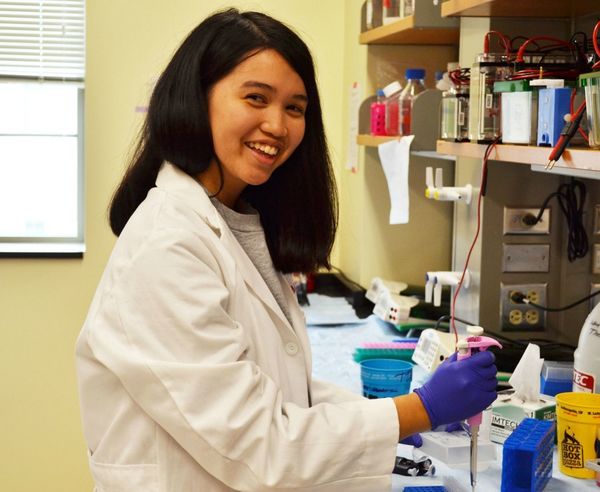Researching hematopoiesis, or blood development, is crucial to the field of cancer research. Understanding how various blood cells and processes work is important in better understanding how blood diseases, like leukemia, develop. Katrina Burgos, a junior at the University of Notre Dame, is especially interested in this field. She helps Dr. Richard Dahl, Assistant Professor of Microbiology and Immunology, who focuses primarily on the role of mic

roRNAs in hematopoiesis. Specifically, his lab studies the hematopoietic stem cell, which is a precursor for different types of blood cells. Dr. Dahl’s past research has shown that that a certain mRNA cluster (miR-23a) promotes red blood cell development over white blood cell development.
Undergraduate researchers are essential in furthering Harper’s cancer research. Majoring in Science-Business and minoring in Theology, Katrina Burgos is working with Dr. Dahl to learn more about how the miR-23a cluster plays a role in hematopoiesis. Katrina worked at the Harper Cancer Research Institute as an intern in the office during the fall of 2013 and spring of 2014, and is very familiar with mission and values of HCRI. Prior to this past summer, she had no research experience outside of classroom labs. To prepare for her new role as a researcher, Burgos trained in the lab this past summer and learned more about the exact work she would be doing in the lab.
At the start of the school year, Katrina began focusing on her particular project. Currently, she is using western blots to test microRNAs. “Western blots are a technique used in lab to detect specific proteins in a sample. The first step involves gel electrophoresis, which is a method that allows researchers to separate proteins by molecular weight. The proteins are transferred to a membrane, and we stain them for specific antibodies that help identify target proteins. I perform western blots on samples overexpressing the miR-23a cluster and compare to a control to see how different antibodies are expressed,” Burgos says.
Projects like Katrina’s are important in identifying microRNAs that promote lymphoid development over myeloid development. Understanding which clusters promote development of certain cells will help in better understanding how these cells impact the immune system.
Burgos has several objectives in mind for her time in Dr. Dahl’s lab. “My goals are to contribute to the lab’s research and develop my analytical skills. Although my project does not directly address ca
ncer, I am able to add to the current knowledge about blood development. Understanding the mechanisms behind hematopoiesis and sharing this knowledge with other scientists helps contribute to a cure for blood diseases, such as leukemia. Cancer affects everyone in one way or another, so I feel that our lab’s contribution is a great way to help reach this end goal,” Burgos concludes.